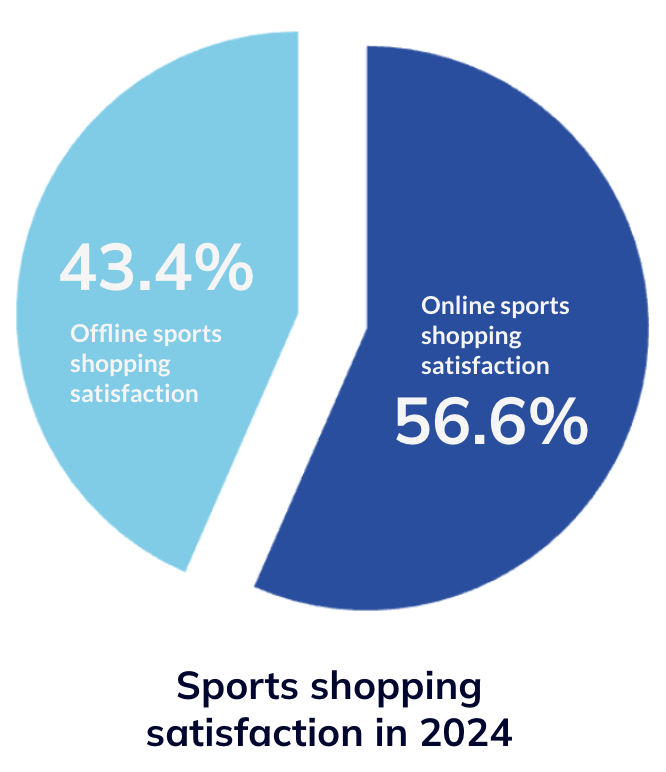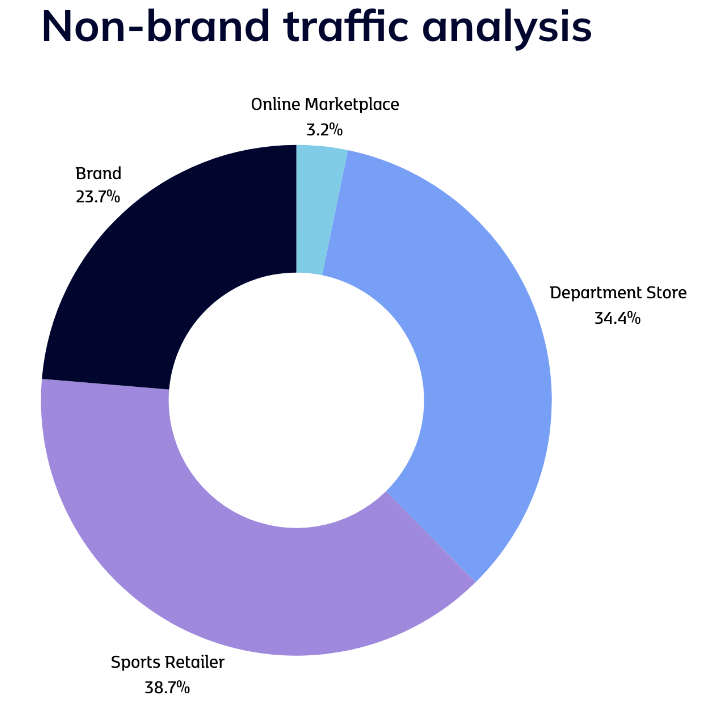Masterclass: Optimising Salesforce Commerce Cloud (SFCC) Sites for SEO: Part 2 -Website Crawling & Redirect Tools

In Part 1 of our guide on optimising Salesforce Commerce Cloud (SFCC) sites for SEO, we explored the essential aspects of hostname configuration, location mapping, and URL structure. Now, in Part 2, we’ll dive deeper into another crucial element of SEO: website crawling and redirect tools.
Ensuring your SFCC-based site is crawlable by search engines and utilises properly managed redirects is critical to maintaining and enhancing your site’s search visibility. Without the right setup, you could encounter issues like crawl errors, duplicate content, and lost link equity, all of which can harm your rankings. In this instalment, we’ll walk you through the tools and strategies within SFCC that help you optimise your site’s crawling efficiency and manage redirects effectively, ensuring your site is not only visible to search engines but also delivers a seamless experie
Website Crawling & » Read more about: Masterclass: Optimising Salesforce Commerce Cloud (SFCC) Sites for SEO: Part 2 -Website Crawling & Redirect Tools »
Masterclass: Optimising Salesforce Commerce Cloud (SFCC) Sites for SEO: Part 1 – Hostnames & URL Structure

Salesforce commerce cloud (SFCC) is a commonly used, cloud-based platform for eCommerce sites, be it large, small, B2C or even B2B. As an all-in-one tool for website hosting and catalogue management, SFCC features an array of valuable settings to enable you to serve products and categories to users across multiple countries and domains.
When used to its full capacity, SFCC can help you to implement SEO functionality expertly and with ease, however, the platform can be difficult to navigate without proper guidance and consideration.
We’ve identified some key areas within SFCC Business Manager (the command centre for your eCommerce platform) which can be harnessed to ensure best practice for SEO, which we’ll be looking at throughout this three-part series:
Key Predictions for Sportswear Ecommerce: SEO and Content Marketing Trends for 2025

As the sportswear and athleisure markets continue to evolve, brands and retailers are presented with new opportunities to leverage changing consumer behaviour and emerging digital trends. Our latest Sportswear and Athleisurewear Ecommerce SEO Report offers crucial insights, giving brands a clear path to strengthen their online presence in this fast-growing sector.
In this post, we’ll explore key predictions for 2025 sportswear ecommerce from an SEO and content marketing perspective, and how brands can stay competitive in a rapidly shifting market.
DOWNLOAD Sportswear and Athleisurewear SEO Report
1. Athleisurewear’s Growth is Unstoppable
In 2025, the UK sportswear industry is set to be one of the fastest growing sectors on the market, with revenues expected to hit £17.1bn at 4.5% CAGR, up from £13.8bn in 2020.
The explosive growth of sports and athleisurewear won’t be restricted to the UK, with the market projected to grow at a CAGR of 9.91% through to 2031, potentially reaching a staggering $725.55 billion. The rise of athleisure reflects a shift in consumer preferences, where comfort and functionality, in addition to aesthetics, are becoming the most desirable characteristics in everyday fashion.
So, what does this unstoppable growth mean for your ecommerce strategy in 2025 and beyond?
Top 10 Key Learnings from Our Ecommerce Sportswear and Athleisurewear Report

The sportswear and athleisurewear industry is evolving rapidly, driven by shifts in consumer behaviour, technological advancements, and emerging trends. For ecommerce brands, staying ahead of these changes is crucial for capturing market share and building strong customer relationships. Our 2024 Ecommerce Sportswear and Athleisurewear Report highlights the top 10 key learnings that can help brands navigate this dynamic landscape, from embracing sustainability to leveraging the latest SEO strategies.
1. The Sportswear Market is Booming
The global sportswear market is poised for significant growth, expanding from $428.21 billion in 2021 to a projected $725.55 billion by 2031. This surge is largely driven by the increasing popularity of ecommerce, which has become a vital channel for sales, especially in the UK. Here, online sportswear sales are not only growing but are also outstripping the performance of physical retail stores, highlighting the critical importance of digital strategies for brands.
2. Direct-to-Consumer (DTC) is the Future
Top sportswear brands such as Nike, Adidas, and Puma are increasingly shifting towards a direct-to-consumer (DTC) model, which allows them to bypass traditional retail channels. This approach enables brands to forge stronger, more direct relationships with their customers while gaining greater control over the entire ecommerce experience. Additionally, DTC strategies provide valuable first-party data that is essential for personalizing marketing efforts and driving customer engagement. Adidas and Nike have been leading the way in DTC performance over the last 5 years.
3. Retailers and Marketplaces Still Dominate Non-Brand Traffic
Retailers and marketplaces continue to hold a commanding presence in the sportswear ecommerce space, capturing 77% of non-brand traffic. For individual brands, this dominance presents a challenge: to carve out a distinct identity and secure higher rankings for key search terms. To stand out, brands need to innovate their SEO strategies, focusing on niche keywords and unique content that can differentiate them from the broader retail landscape.
4. Seasonality Requires Agility
The sportswear industry is highly seasonal, with consumer demand and fashion trends shifting rapidly throughout the year. To stay competitive, ecommerce brands must be agile, ready to adjust their SEO tactics and marketing strategies in response to these seasonal changes. By aligning their campaigns with current trends and consumer behaviour, brands can better capture the attention of their target audience at the right time. We’ve seen brands reacting at lightning speed to search trends, and content themes emanating from the European Championships, Wimbledon, and the Paris Olympics games this summer to gain organic traction.
5. Visual Content is Crucial
In the sportswear market, where visual appeal plays a significant role in purchasing decisions, balancing SEO with engaging visual content is essential. Brands need to ensure that their websites are not only optimized for search engines, but also visually compelling enough to attract and convert customers. High-quality images, videos, and interactive content can enhance the shopping experience, making it easier for consumers to connect with the brand and its products. Nike have enjoyed rapid growth in this niche over the last 10 months, thanks in part to the high quality visual content on their PDP and category pages. Nike also do a fantastic job of leveraging UGC (user-generated content) on their product pages. A smart move;
» Read more about: Top 10 Key Learnings from Our Ecommerce Sportswear and Athleisurewear Report »
The Google Search API leak: What it actually means for your site

On Sunday 5th May 2024, API documents were leaked from Google’s Search division. Erfan Azimi, an SEO and founder of EA Eagle Digital, leaked the information, and then Rand Fishkin and Michael King both broke the news.
For decades, the way search works has been shrouded in mystery, and for good reason. Many old SEO tactics like keyword stuffing, buying links, hiding keywords/content using cloaking, etc. stopped Google and other search engines from surfacing the most relevant sites. Usually, when algorithm factors are revealed, they’re abused. Subsequent algo updates were designed to prevent these tactics from being successful.
» Read more about: The Google Search API leak: What it actually means for your site »
Cutting through the noise: key takeaways from Google’s latest algorithm updates for ecommerce brands

Google is constantly evolving to remain the market-leading search engine, continuously adapting to try to deliver the best results for its users. This evolution is achieved through core algorithm updates, where Google makes significant changes to its algorithm and systems to ensure that it consistently provides reliable search results.
Google typically makes hundreds of updates to its algorithm each year, but most of these changes go unnoticed and are not officially confirmed by Google. However, unlike minor updates, core updates are substantial and often cause many websites to experience fluctuations in their rankings and traffic.
So what exactly are these algorithm updates, and how do they impact ecommerce brands?
Answer Engine Optimisation (AEO): How ecommerce brands can adapt and thrive

The recent emergence of powerful, intuitive and easy-to-use AI technologies is transforming how people discover, create and engage with information. And one of the areas most affected by this transformation is web search.
Thanks to AI, the way people look for information, and the way it’s presented to them, is currently undergoing a genuinely unprecedented change. In recent months we’ve witnessed the emergence of numerous AI-powered answer engines and the surge of voice search (some 50% of the U.S. population using voice-enabled search each day).
If you manage an eCommerce website, it’s going to be very important to understand and be aware of these shifts. They will have a significant impact on how you run your domains.
» Read more about: Answer Engine Optimisation (AEO): How ecommerce brands can adapt and thrive »
The hidden costs of a botched site migration: Why ecommerce brands can’t afford to get it wrong

Are you planning a site migration for your company’s online presence? You might be looking to change your domain name, or move to a different CMS, or making some structural changes to how your website is accessed. In any case, a site migration is a challenging project an ecommerce website owner will ever take on, as they can have a significant impact on the site’s performance and visibility.
The costs of a poorly planned site migration can be catastrophic, leading to a collapse in organic traffic and revenue. So, making sure your site migration is well planned and executed is, of course, vital.
Google’s shopping SERPs update: What it means for ecommerce

Today, Google unveiled significant updates to its shopping search results pages (SERPs) in Europe, aligning with the European Union’s new Digital Markets Act. Users will now find additional tabs labelled “Products” and “Product Sites” situated just beneath the search bar at the top of the results page. This development introduces features directly linked to organic search results, specifically, organic product tiles. These tiles bear resemblance to the paid or sponsored product tiles familiar to users for many years.
However, they now emphasise a more organic presence within Google’s search results, marking a noteworthy shift towards enhancing the visibility of non-sponsored content. This change aims to foster a more competitive and diverse online marketplace, ensuring that users have access to a wide array of product choices without the direct influence of advertising.
Key takeaways:
- Google’s Compliance with EU’s Digital Markets Act: Google introduced organic product tiles and tabs (“Products”
» Read more about: Google’s shopping SERPs update: What it means for ecommerce »
Re:commerce 2024 – Recap

I’ll start where Re:commerce2024 ended, with a speaker quote that struck a chord, and sums up some our of the thinking behind our Re:commerce event – “SEOs are pack animals, we are educators” – we’re an industry that shares, we follow the latest developments, interpret the insight and generally enjoy being ‘in it together’. SEO is a discipline where the goal posts constantly change, where learning and adapting are intrinsic to success, where we have to be educators and influencers within our businesses.
Re:commerce exists because at Re:signal, we want to play our part in sharing expertise, passing on knowledge and connecting clients and like-minded brands with the broader SEO community, so we can all learn from one another and navigate the future together.





